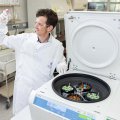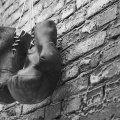Australia needs its own crack team of archaeologists to investigate natural disasters, terrorist attacks or mass graves, UQ research shows.
UQ social science student Megan Clift, who researched mass graves for her honours thesis, said the Australian Federal Police (AFP) disaster response teams could benefit from having trained archaeologists.
Miss Clift said the AFP did excellent work in East Timor and Bali and having more archaeological skills at forensic sites could yield even higher quality evidence for courts or international tribunals.
“Archaeologists would add an extra dimension to evidence recovery procedures in their team,” Miss Clift said.
“If we’re a target of terrorism then we need to be assured that we’re excavating graves and disasters correctly.
“I think we need a much larger and more well organised group of archaeologists.
“In 9/11 there were archaeologists that excavated portions of the city and that certainly turned up a lot of evidence that was missed by a lot of people.
“When you’ve got an archaeologist there you’re really assured of getting even tiny fragments of bone that can help in identification.
“It helps with the safety and integrity of the site and when you’ve got correct documentation procedures as well being assured of getting that evidence.”
South America and the United States have specialist archaeology teams.
Miss Clift reviewed hundreds of case studies and books about mass graves mainly in Iraq and Argentina for her thesis.
“My main argument is that archaeologists are a necessary part of these teams because they collect the evidence in a way that ensures their maximum value in court.”
The 32-year-old from Auchenflower also recommended that United Nations procedures governing the excavation of mass graves from 1991 be updated.
Her supervisor, UQ archaeologist and social science senior lecturer Dr Marshall Weisler, said he supported the formation of a specialist archaeology group.
“When they showed the Bali bombings on the television with the investigators sifting through the rubble, all I could think of was they’re probably losing all sorts of information,” Dr Weisler said.
Miss Clift said she would visit mass graves in Iraq if she studied further for her doctorate.
Media: Miss Clift (0408 076 116, 07 3876 9667, s327885@student.uq.edu.au) or Miguel Holland at UQ Communications (3365 2619)



